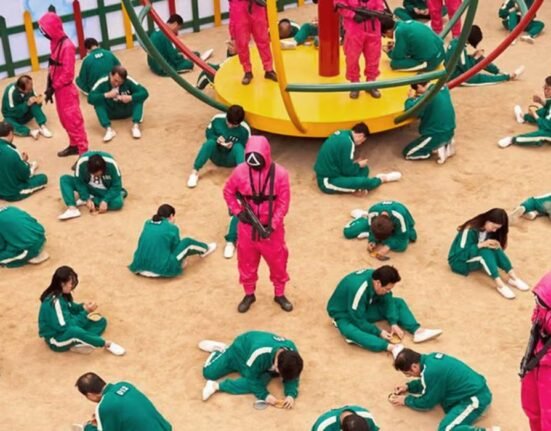The common meaning of prestige corresponds closely with the domain of psychological and social causation, with its associated ethnological displays and emergent population-level phenomena. The psychology of prestige has its roots in elaboration. Still, in the ultra-modern world, we have the capability to reflect on the provocations behind our pursuit of status. It is important to distinguish between wanting to achieve a thing that is aligned to our values and will truly make us feel good, and a thing we want to make purely for its associated status in our society.
Theories conflating Prestige and Dominance
Psychologists argue that prestige is homologous to nonhuman dominance. The social rankings assessed through force and force trouble in nonhumans came from the rankings of earned compliance that we see in mortal societies. Researchers suggest that males with greater skills are capable of higher levels of investment, and they are also those with better cultural capacities.
The importance of Social learning
Prestige is a consequence of the elaboration of direct social literacy capacities in the mortal lineage- capacities that are relatively distinct, from the social literacy capacities of other species. The most important difference between mortal and inhuman social literacy is that humans retain colourful forms of direct social literacy that most other creatures fully warrant. In true imitation, for example, a human imitator can copy the behaviour or behavioural strategy of a model, including the motor patterns and objectives. So, when a human child learns to throw a ball, she tries to copy the model’s arm motions and footwork as well as the objective.
Also Read: Why Do We Often Indulge In Binge Watching?

In discrepancy, other forms of social literacy common in nonhumans do not involve the transmission of both pretensions and motor patterns e.g., original improvement, social facilitation, emulation literacy etc. In local enhancement, the learner’s proximity to a skilled individual increases the chance of reinventing rather than directly acquiring the behaviour.
Our natural desire for Prestige
The significance we confer on prestige makes sense from an evolutionary perspective. For our ancestors, being popular was the biggest advantage. Social status offered lesser group protection and life. Also, as modern individuals, we seek out and follow paths that will maximize our social status and capital, even if we do not realize we are doing it. It has been said that status influences how we bear and suppose. For illustration, wearing developer apparel or driving a sports auto may be part of our inbuilt desire for prestige. Similar status symbols can help maintain social scales.
Ultramodern society has aggravated our natural desire for high-ranking status, with social media as a giant leaderboard where we contend with each other to gain the utmost prestige points. People perceive social media as a platform designed to provide an effective means of accumulating social capital. They believe that likes, retweets, or comments contribute to expanding their reach and enhancing the perception of their own value. It is a world of artificial prestige.
The Impact of Status Anxiety
When you concentrate on how successful you appear to others, status anxiety can do. Your fear of societal disapproval might strongly contribute to forming dangerous long-term opinions. The desire to achieve status may mean you did not consider other career options and may have turned down more suitable openings because of your drive to appear prestigious. The concern about others’ opinions and whether we are perceived as successful or unsuccessful can cause us to form judgments that undermine our confidence, diminish our self-worth, or conflict with our values.
Read More: Developing Self Concept
Status symbols similar to a large house in a desirable area, multiple leaves each time, or suitable to flash a Rolex on your wrist may all be ways that you feel your significance and value in society. Still, when you drive to be outwardly successful supersedes all differently, you may ignore instigative vocational work openings, put too little energy into particular connections, or fail to make time for rest. However, you could progress presto, but not in the right direction. If you decline openings for personal growth or tone discovery while seeking status. In situations in which status, rather than the achievement itself, is the goal, we will find that indeed when acquired, we will probably remain displeased.
Breaking free from the Social Status game
We can replace illogical status-seeking behaviors with healthier preferences that prioritize the value inherent in the action itself rather than in the arbitrary accumulation of status symbols. Here are a few strategies to help you replace empty prestige with sportful disquisition:
- Practice metacognition to reflect on long-term pretensions: By getting more apprehensive of your study processes, it is possible to observe patterns regarding your motivations. If you observe yourself feeling artificially compelled to engage in actions driven by the prospect of heightened status, make a written record of this in a journal. Allocate time to assess whether the situation or stimulus truly aligns with your values or if a desire for prestige is limiting your actions
- Encompass yourself with explorers: If your associates, muskeeters, or family are all driven by status, it is delicate not to get smelled into the pursuit of outside signs of success. Indeed, worse, you may find yourself playing a game of one-upmanship and in a vicious cycle of trying to appear better than one’s peers. To avoid this trap, find muskeeters online and in real life who are not playing the status game. This will help to avoid feelings of inadequacy and the desire to keep up with others.
- Explore unconventional paths: Numerous people have achieved success in pursuing their interests. Reserve time to read the lives and biographies of those who have achieved their dreams not by seeking wealth or status, but by reflecting on what is important to them and following their own path.
- Focus on learning new skills: Rather than collecting status symbols, try to acquire skills that could help you grow and develop as an existent. This could include working on your communication skills, tone-confidence, or problem-solving capabilities. It may indeed involve considering a career change.













Leave feedback about this